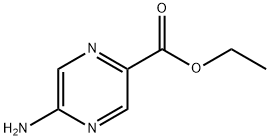Are the number of neutrons in oxygen constant, or does it vary among different oxygen isotopes? How does the neutron count influence oxygen's nuclear stability? In comparison to other elements in the same group, like sulfur, how do their neutron numbers differ? And how does the number of neutrons in oxygen play a role in nuclear reactions involving oxygen? For instance, does it affect the energy release or absorption during such reactions?
Regarding Oxygen in Chemistry, How Many Neutrons Does It Contain?
Related Encyclopedia
Related Products More >
-
- 9002-10-2
- equest For Quotation
- Bottle,barrel,cargo,container,etc.
-
- 7782-44-7
- equest For Quotation
- 40L/Cylinder, ISO tank
-
- equest For Quotation
- 25kg/bag
-
- equest For Quotation
- 500g
-
- equest For Quotation
- 1kg
-
- equest For Quotation
- 25kg
-
- equest For Quotation
- 25kg




 沪ICP备2021018848号-5
沪ICP备2021018848号-5

Now, let's talk about how the neutron count influences oxygen's nuclear stability. Generally, having a proper balance between protons and neutrons is important for an atom to be stable. In the case of oxygen - 16, the 8 neutrons and 8 protons seem to create a nice, stable combination. But when we look at the less common isotopes, like oxygen - 18, having those extra 2 neutrons can make the nucleus a bit more "heavy" in a sense. This doesn't necessarily mean it's unstable, but it does change the properties of the atom. Isotopes with an odd number of neutrons or a large imbalance between protons and neutrons might be more likely to undergo radioactive decay to become more stable.
When we compare oxygen to other elements in the same group, like sulfur. Sulfur has 16 protons, and in its most common isotope, sulfur - 32, it has 16 neutrons. That's a big difference from oxygen - 16. Sulfur's larger nucleus with more protons and neutrons means it has different chemical and physical properties. For example, sulfur is less reactive than oxygen in some cases because its outer electrons are further from the nucleus and more shielded by the inner electrons and the larger number of neutrons in the nucleus.
In nuclear reactions involving oxygen, the number of neutrons plays a crucial role. In a fusion reaction, if oxygen atoms are involved, say in a high - energy environment like in a star, the number of neutrons can affect how easily the atoms combine. If two oxygen - 16 atoms were to fuse, the total number of neutrons and protons in the resulting nucleus would determine what element is formed and how much energy is released or absorbed. If there are too many or too few neutrons in the reactant oxygen atoms, it can make the reaction more or less likely to occur. In a fission reaction, which is less common for oxygen but can happen under extreme conditions, the splitting of an oxygen nucleus would depend on the initial neutron count. If the oxygen isotope has a lot of neutrons, like oxygen - 18, it might be more likely to split and release energy. And the energy release or absorption during these nuclear reactions is directly related to the change in the binding energy of the nucleus. The binding energy is affected by the number of neutrons and protons. So, in short, the number of neutrons in oxygen is a key factor in determining its nuclear behavior in reactions, whether it's about forming new elements or releasing energy that can power stars or be harnessed in other ways.
The neutron count has a significant influence on oxygen's nuclear stability. In general, for lighter elements like oxygen, having a certain ratio of neutrons to protons is important for stability. Oxygen - 16, with an equal number of protons and neutrons (8 each), is very stable. As the number of neutrons increases relative to protons in isotopes like oxygen - 17 and oxygen - 18, the nucleus becomes a bit more complex in terms of the forces at play. However, these isotopes are still relatively stable.
When we compare oxygen to sulfur, which is in the same group, their neutron numbers are different. Sulfur has an atomic number of 16, which means it has 16 protons. The most common isotope of sulfur, sulfur - 32, has 16 neutrons. So, sulfur generally has more neutrons than oxygen for the same number of protons in its most common isotope.
In nuclear reactions involving oxygen, the number of neutrons plays a role in energy release or absorption. For example, in nuclear fission or fusion reactions, if the neutron count in the oxygen isotopes involved changes, it can affect the overall energy balance of the reaction. Different isotopes may react differently when bombarded with particles or when involved in chain reactions. A change in the neutron number can alter the binding energy of the nucleus, which in turn affects whether energy is released or absorbed during the reaction. So, the neutron composition of oxygen isotopes is an important factor to consider in understanding nuclear processes involving oxygen.
Oxygen has three main isotopes: oxygen-16, oxygen-17, and oxygen-18. As you can guess from the names, they have 16, 17, and 18 neutrons, respectively. The most common one, oxygen-16, has 8 protons and 8 neutrons, making it quite stable.
Now, the neutron count in an atom's nucleus affects its stability. Generally, having the right mix of protons and neutrons keeps the nucleus happy and stable. If there are too many or too few neutrons, the nucleus might be unstable and prone to decay.
When we compare oxygen to other elements in the same group, like sulfur, we see differences in their neutron numbers. Sulfur, for example, has more protons and neutrons than oxygen because it's a heavier element. But just like oxygen, sulfur also has different isotopes with varying neutron counts.
As for nuclear reactions involving oxygen, the number of neutrons can make a big difference. For instance, in fusion reactions, where light elements combine to form heavier ones, the neutron count can affect how much energy is released. Having the right mix of protons and neutrons can make the reaction more efficient and produce more energy.
On the other hand, in fission reactions, where heavy elements split into lighter ones, the neutron count can influence how the reaction starts and spreads. Too many or too few neutrons can affect the chain reaction and the amount of energy produced.
So, the number of neutrons in oxygen and other elements plays a crucial role in nuclear reactions, affecting everything from stability to energy production.